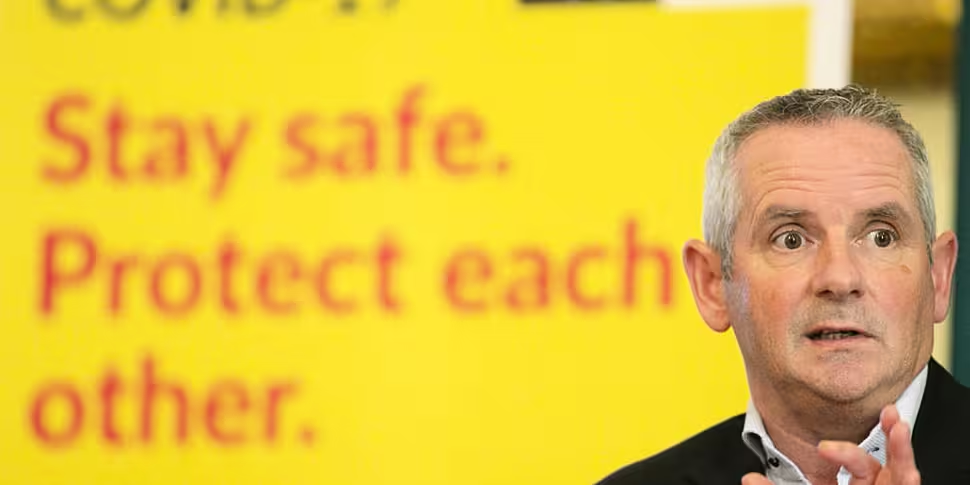The HSE Chief Executive Paul Reid has warned that the impact of COVID-19 on Irish hospitals is now “as significant” as it was at the peak of the outbreak.
In a tweet, Mr Reid said there are 110 COVID-19 patients in hospital with 18 people in intensive care.
We've now 110 #COVID19 hospital cases,18 in ICU. Although lower than our worst peak, the impact on our hospitals is as significant as we're now trying to keep all of our other services running too. This is a call to arms to everyone to get right behind all that we ask. @HSELive
— Paul Reid (@paulreiddublin) September 27, 2020
He noted that although the figures are lower than at the “worst peak” the impact on Ireland’s hospitals is “as significant as we're now trying to keep all of our other services running too.”
“This is a call to arms to everyone to get right behind all that we ask,” he said.
It comes as Tallaght Hospital and University Hospital Limerick have both reduce scheduled elective care as case numbers rise.
On Newstalk Breakfast with Seán Defoe this morning, Dr Graham Fry, Medical Director of the Tropical Medical Bureau, said reducing the number of people who end up in hospital will be crucial this winter.
“Every single night, we hear the actual number of cases,” he said.
“From the epidemiological point of view; from the spread point of view that is really important.
“From the normal person’s point of view, what is really important is not that, it is the morbidity and the mortality. It is the number of people getting really sick, the number of people in ICU and the number of people dying.
“We have to keep people not getting sick and not ending up in intensive care because that is where the hospitals become overrun. Everybody needs to do their part to try and reduce that.”
Worst-case
He said officials have to consider the worst-case scenario when attempting to protect hospitals over the winter.
“We honestly have no idea how severe this is going to become over the next three or four months,” he said.
“If we don’t get the baseline right at this point in time, potentially in October, November and December when we have the flus and everything else going on, we will have a disaster.
“We honestly just don’t know. It is possible that there will be less flu being transmitted because we are being better about staying away from people, washing our hands and the masks and so on, but we just don’t know.
“So unfortunately, you are trying to guess what the scenario is going to be and if we get it wrong, people are going to die.”
COVID-19 transmission
Dr Fry was speaking after the National Public Health Emergency Team announced plans to begin “enhance retrospective contact tracing” to try and get a clearer picture of how clusters are developing.
It means contact tracers will go further back with confirmed cases to determine not just when they began feeling unwell but where they may originally have been infected.
Dr Fry said there is a “huge amount we don’t know about transmission.”
“Over the past couple of months, we have been testing people for antibodies,” he said.
“You have scenarios where a husband has the antibodies, he did get the disease, but the wife and children didn’t.
“How does that happen in the same house? What was different about them to other scenarios where everyone gets the disease from one exposure.
“Is it just coughing and touching surfaces or is it actually purely airborne or droplet borne? All those questions are still up in the air.
“The other question is how long do antibodies last for? Is it six months or 12 months? Or are the T-cells, the other cells we have in our body, are they there for much longer? Do they protect us for the future? Those are questions we just don’t know all the answers to at this point in time.”
Rapid testing and tracing
He said the answer in the short term will be, “rapid testing and tracing.”
“We need to get to that scenario where we can get somebody in straight away and get them tested or they can do it at home themselves,” he said. “We don’t have that yet but that needs to be there.
“When we have that, then we can get people tested very quickly and if they are infected, they can separate, if they are not, they can get back to work.”









